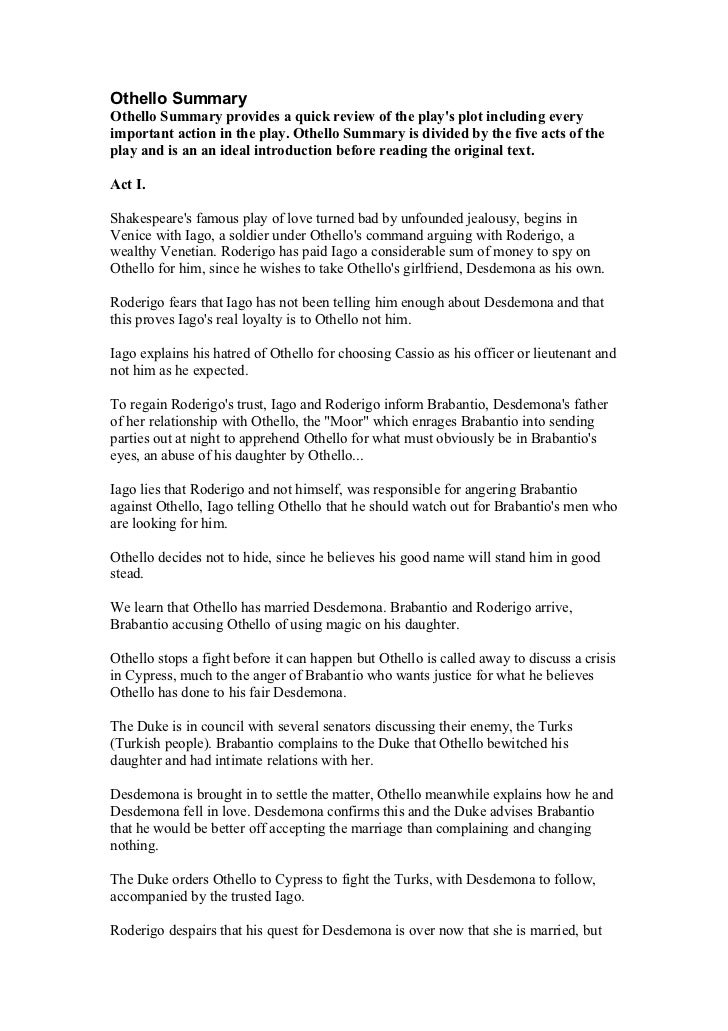

With Brabantio, he uses rude and quite vulgar language and then switches to poetic language when talking to the reader. When he speaks with Roderigo, he says: “I am not what I am,” to show to the reader how double-faced he is (Shakespeare). Iago shifts from one register to another to achieve the desired effect. Simultaneously with that, the audience can trace how other characters are manipulated through speech as well (Alkoli and Ji 420).

Interestingly, the style of the play reflects how a character can manipulate another hero into doing what they want them to do. There is no narrator in the play, and the characters speak openly, which enables the audience to get into their thoughts. Curiously, the structure of the text supports the deterioration in Othello’s mental well-being, and it is quite easy for the reader to follow the events and the mood of the play. The structure of it is quite clear – a tragedy in five acts, and the plot gradually develops toward a climax and finishes with a pronounced denouement (Shakespeare). This summary is told using the language of the play itself, placing key quotations in context to help you understand where these lines come from and what they mean.The setting of the play is Venice of the early modern time (Abuzahra and Salahat 186).

Professor Karim-Cooper provides key historical background for understanding the play’s representation of Othello. In Part 1, you’ll be guided through a detailed account of the story with commentary by Farah Karim-Cooper, Head of Higher Education and Research at Shakespeare's Globe and Professor of Shakespeare Studies at King's College, London. In this course, you’ll learn Othello’s story, explore the complicated impact of race on Othello’s society and Othello himself, and hear the play’s key speeches performed and analyzed by world-class Shakespearean actors and literary scholars. Othello is a black general who elopes with a white noblewoman called Desdemona - a marriage that Iago, Othello’s comrade-in-arms, plots to destroy. William Shakespeare’s Othello is the only one of his tragedies to feature a black male protagonist.


 0 kommentar(er)
0 kommentar(er)
